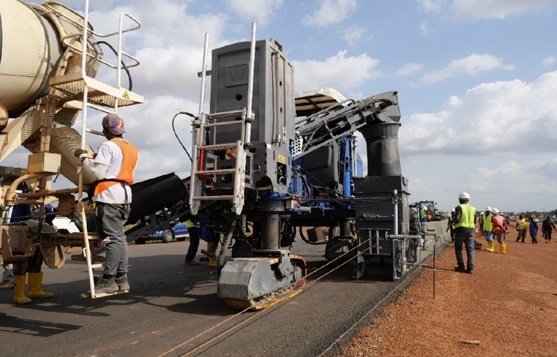- Julius Berger’s administrative expenses surged 30.5% to ₦75.8 billion, compared to ₦58.1 billion in 2023.
- The spike in spending comes amid a 12.5% decline in profit before tax, raising concerns about cost discipline.
- Key drivers of rising costs include higher staff salaries, operational expansions, and regulatory compliance.
- Non-operating income, including ₦16.8 billion from forex gains and ₦15.3 billion from asset disposals, helped offset the pressure on earnings.
- Investors are scrutinizing whether the increase in expenses represents strategic investments or inefficient cost structures.
- The company spent ₦34.6 billion on capital expenditures, reinforcing its long-term expansion plans.
- With profitability under pressure, questions arise about whether Julius Berger can sustain shareholder returnswhile controlling costs.
- Liquidity remains stable, with cash reserves at ₦157.8 billion, but further cost escalation could strain future margins.
- The outlook remains mixed, with Nigeria’s construction boom offering opportunities, but inflation and forex volatility pose risks.
Julius Berger’s latest financial results highlight a paradox—while revenue has grown significantly, administrative costs have escalated at an even faster pace. The company reported ₦75.8 billion in administrative expenses for 2024, a staggering 30.5% increase from the previous year. This surge in spending comes at a time when profit before tax declined by 12.5%, raising concerns over whether cost inefficiencies are eroding the company’s profitability. Investors are now left questioning whether this rise in expenses is a necessary investment for future expansion or a sign of declining cost discipline.
A deeper look into the cost breakdown suggests multiple factors at play. Rising labor costs, operational expansions, and regulatory compliance requirements have contributed to the surge in administrative expenses. Given Julius Berger’s leading position in Nigeria’s construction industry, the company is under constant pressure to attract and retain top talent, which has inevitably increased salary expenditures. Additionally, expanding into new projects requires increased logistical support, contract management, and infrastructure investments, all of which add to overhead costs.
While administrative costs have spiked, Julius Berger has managed to stabilize its bottom line through non-operating income. The company reported ₦16.8 billion in foreign exchange gains and an additional ₦15.3 billion from asset disposals, both of which helped offset declining operating profits. However, relying on one-time gains to maintain profitability is not a long-term strategy, and investors will be closely watching whether operational efficiencies improve in the coming quarters. Additionally, the company must assess whether its rising administrative costs are yielding tangible productivity gains. Without clear efficiency improvements, these elevated costs could weigh further on profitability. Cost rationalization efforts, such as streamlining operational workflows and adopting more scalable administrative structures, may be necessary to improve margins. Furthermore, optimizing procurement and supply chain processes could provide additional savings. If Julius Berger fails to rein in these expenses, its ability to sustain shareholder value in the long run may be compromised.
Julius Berger’s capital expenditure strategy also plays a key role in its financial outlook. The company spent ₦34.6 billionon property, plant, and equipment in 2024, reinforcing its commitment to long-term expansion. These investments are aimed at maintaining its competitive edge in Nigeria’s infrastructure and construction sector, which remains a key growth driver despite macroeconomic headwinds. However, the challenge lies in balancing growth investments with financial sustainability. With profit margins under pressure, cost efficiency will be crucial in determining the company’s ability to generate long-term shareholder value. Additionally, the company must navigate potential delays in project execution, which could increase operating costs further. Ensuring that capital expenditures translate into improved efficiency and productivity will be critical. Strategic resource allocation will determine whether these investments drive sustainable earnings growth or become a financial burden. The ability to optimize procurement and streamline project execution could significantly enhance the return on investment. Investors will be closely watching whether Julius Berger can achieve operational efficiencies to justify its expanding cost base.
Liquidity remains relatively stable, with ₦157.8 billion in cash and cash equivalents, but continued cost escalation could pose risks. Investors will be keen to see whether Julius Berger implements stricter cost controls in the coming quarters, particularly as higher administrative expenses risk eroding profit margins. The rise in these costs is particularly concerning given Nigeria’s challenging economic environment, where inflationary pressures and exchange rate volatility continue to impact business operations. With the construction sector requiring substantial capital investment, inefficient spending patterns could undermine Julius Berger’s ability to capitalize on growth opportunities. Analysts argue that cost containment strategies will be crucial in ensuring that revenue growth translates into sustainable profitability.
Looking ahead, Julius Berger must navigate a delicate balance between expansion and cost control. The company’s ability to sustain its profitability will depend on its capacity to rein in operational expenses while capitalizing on growth opportunities in the infrastructure sector. With demand for construction services expected to remain strong, Julius Berger has an opportunity to leverage its market leadership—provided it can maintain financial discipline.
For investors, the key questions remain: Will Julius Berger’s rising administrative costs translate into future growth, or are these expenses a sign of inefficiency? Can the company improve operational efficiency while sustaining its revenue momentum? As earnings reports unfold, the company’s cost management strategy will be a critical factor in determining its long-term trajectory. Investors will also be watching whether management takes proactive steps to mitigate rising expenses without stifling growth. If cost controls are not implemented effectively, further margin compression could follow. This raises concerns about the company’s ability to sustain dividend payouts and reinvest in future expansion. As market conditions evolve, cost efficiency will play a crucial role in shaping Julius Berger’s long-term financial health and investor confidence.
